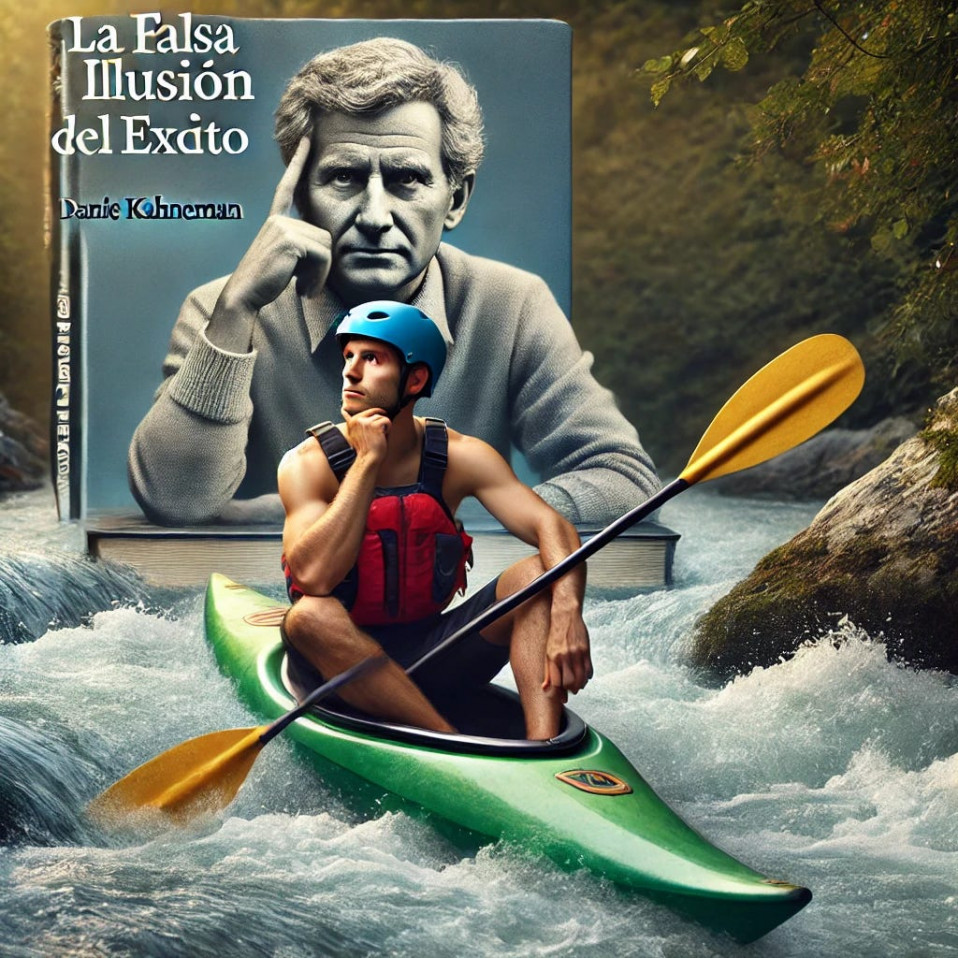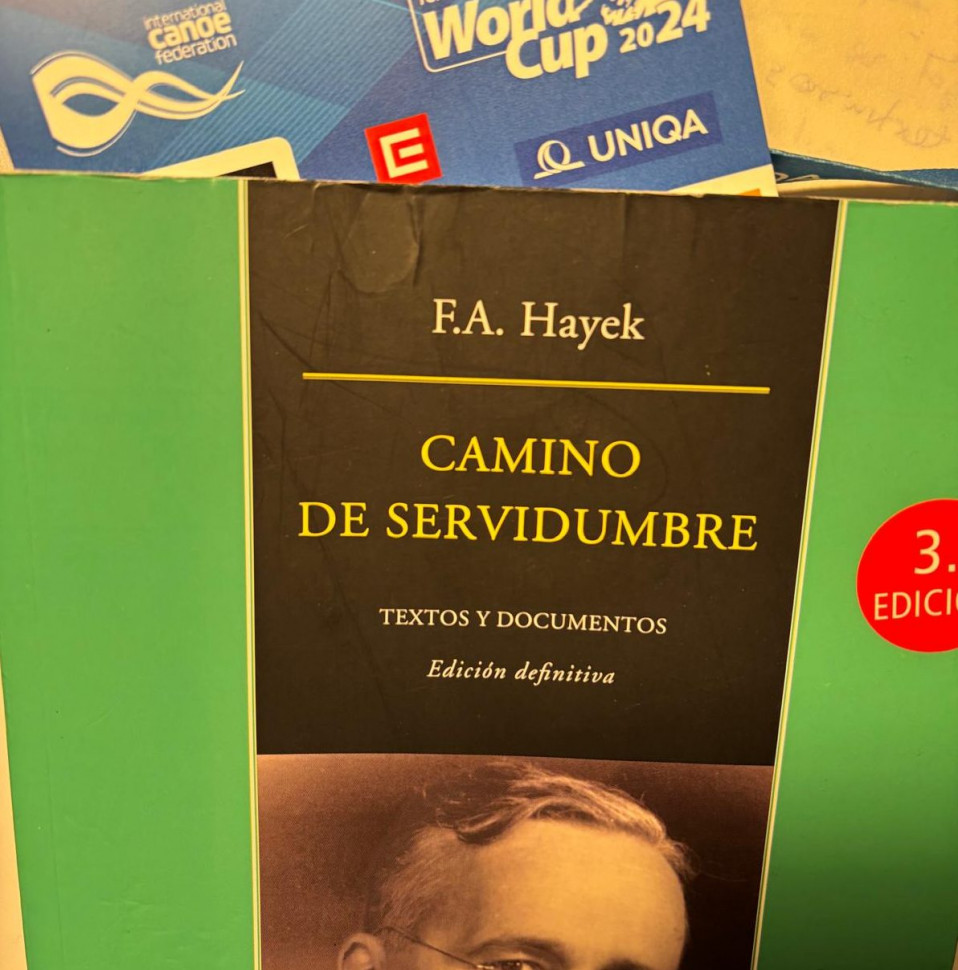Brushstroke 24. Coaching is a Humanism
I have been a canoeing coach for half of my life. Over those years, I have made small mistakes, medium-sized mistakes, large mistakes, and even
Brushstroke 23. The coach sees what does not seem to exist.
Those who read me often know that I tend to look at reality through its blind spots, not through its certainties. I’m more interested in
Brushstroke 22. A coach is not just a simple wrench.
On many occasions, I have heard coaches from different sports claim that a coach is nothing more than another tool within the sporting process. From
Brushstroke 21. What I Learned Coaching Through a Translator in China
I’ve now spent a year and a half working with athletes in Guizhou province, right in the heart of China. Every day brings something new.
Brushstroke 20. The Pedants of Leadership.
I have never considered myself a leader. Nor have I, of course, ever seen myself reflected in those endless lists of traits that supposedly define
Brushstroke 19. Humility and Variability: The Hidden Lessons of Slalom
Not long ago, I went back to training in Pau with my son Luka. We paddled together, and I was excited about the idea of
Competing Better through this Via Negativa
This new article took its time to come to light, mainly because I spent the last month in China and also dedicated 98% of my
Brushstroke 17. You are what you do between training sessions.
I’ve been in China for a week now, in my host province: Guizhou, where I’ll be staying for another three weeks. As always, I can only
Brushstroke 16: Nietzsche, Resentment, and Athletic Goals
“If your sign is to burn, then burn fully— Your shirt, your yard, your health. If you must burn one way or another, Then burn
Brushstroke 15. The best execution is not the imagined one — it’s the possible one.
The first Canoe Slalom World Cup is approaching, and as every year, that familiar and unsettling feeling returns: the impression of not being fully prepared.
Brushstroke 14. When is it enough?
Today, on the banks of the Parc del Segre —venue of the first Canoe Slalom World Cup of 2025— I was speaking with a veteran
Brushstroke 13. See with different eyes.
One of the most common mistakes we make when analyzing athletic performances in Canoe Slalom has to do with how we interpret what we see.
Brushstroke 12: Athlete, that void you feel is your own freedom.
The reader might think I’m a bit obsessive with my references to Jean-Paul Sartre. The truth is, there’s something in his reasoning that really resonates
Brushstroke 11: Your Training Sessions, the Donut Seller, and the Virgin of Guadalupe
Years after the Civil War, my grandparents opened a bar next to the Sanctuary of Guadalupe in Hondarribia. It was the second business they ran;
Brushstroke 10. Leadership and Mediterranean Diet.
I’ve been in China for a month now, training and advising athletes and technical staff in Guizhou province, located in the south-central part of this
Brushstroke 9: It’s not where you come from, it’s where you’re going.
This insight is very brief. Over the years, coaches develop an almost immediate instinct for identifying athletes who struggle to be “coachable.” A recent study
Brushstroke 8: The hobbissional approach: between hobby and profession
“When it comes to our hobbies, we should be underqualified. When it comes to our profession, we should be overqualified.” — Nassim Nicholas Taleb Lebanese
Brushstroke 7. Bricks and Mortar: Training to Compete
We know that Canoe Slalom is a sport where artists in peak physical condition reign. Accepting this reality from the start would prevent many disappointments
Brushstroke 6. If You Like Tactical Actions, You Will See “Tactical Inactions”
Let’s be honest: in Canoe Slalom, what you do is crucial, but what you don’t do is just as important. In our sport, inaction is
Brushstroke 5. Nobody loves the pessimistic, but we need him.
I am one of the lucky ones who has had the chance to know and work for years with Josean Arruza, Professor of Psychology at
Brushstroke 4. Was Hayek a Team Manager?
The post emphasizes that competition within sports teams, particularly in Canoe Slalom, can be constructive rather than detrimental. It advocates for managing competition to foster creativity and inclusion, while clearly defining goals and allowing decentralized execution. Effective leadership can harness rivalry to enhance both individual and collective performance, transforming tensions into progress.
Brushstroke 3: Existentialism vs. Essentialism in Canoe Slalom.
There are numerous ways to deceive oneself, and one of the most common arises when reflecting on our true potential as athletes, whether at a
Brushstroke 2: Knowledge Transmission and Mastery.
Lately, I’ve spent quite a bit of time in China, helping our friends — coaches and canoeists from Guizhou province — improve their approach to
Brushstroke 1: The Reverse Pointillism.
During my time as a (poor) philosophy student, I found myself briefly fascinated by the ideas circulating in Europe at the turn of the 19th
























